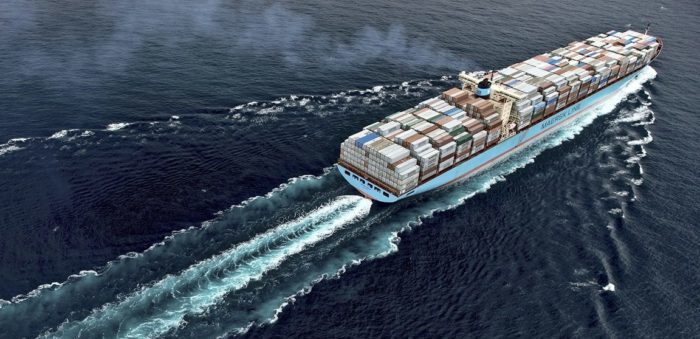Danish shipping group A.P. Moller-Maersk is planning to increase the proportion of high sulphur fuel oil it consumes from 10% to 25% by the year-end, according to the company’s CEO Soren Skou.
As Reuters reports, the world’s largest container shipping firm consumed a total of around 11.80 million tonnes of shipping fuel last year.
Maersk’s current shipping fuel use comprises of around 10% ultra low sulphur (0.1%) fuel oil, 10% high sulphur fuel oil and the remaining 80% is low sulphur fuel oil.
Last month, Maersk also increased fuel surcharge imposed on the transport of boxloads of goods as the implementation of the new environmental rules sent the industry’s costs soaring.
[smlsubform prepend=”GET THE SAFETY4SEA IN YOUR INBOX!” showname=false emailtxt=”” emailholder=”Enter your email address” showsubmit=true submittxt=”Submit” jsthanks=false thankyou=”Thank you for subscribing to our mailing list”]
According to a notice of the company, A.P. Moller-Maersk A/S, which ships almost one in every five containers moved by sea, is to impose a fuel surcharge of $50 to $200 per box across trade routes.
As Maersk has communicated, the switch of marine fuel to comply with the IMO Sulphur Cap regulation would bring substantial cost increase for ocean shipping, as fuel cost would account for an even larger portion of total freight rate.
At the same time, an increased volatility in fuel price was also anticipated.
As for the new coronavirus, Maersk said that it is positioning itself for a strong rebound in two months, forecasting that the fallout of the coronavirus on global trade may soon peak.
Maersk’s CEO, Soren Skou, during an interview with Bloomberg Television’s Matthew Miller commented that
Over the last two and a half weeks we have seen a steady decline in the number of new cases and that is positive
However, there are still many uncertainties in the industry. This is due to the fact that China’s impact on global supply is much bigger than it was during the SARS crisis in the past, keeping in mind that the whole globe is highly dependant on Chinese production.






























































